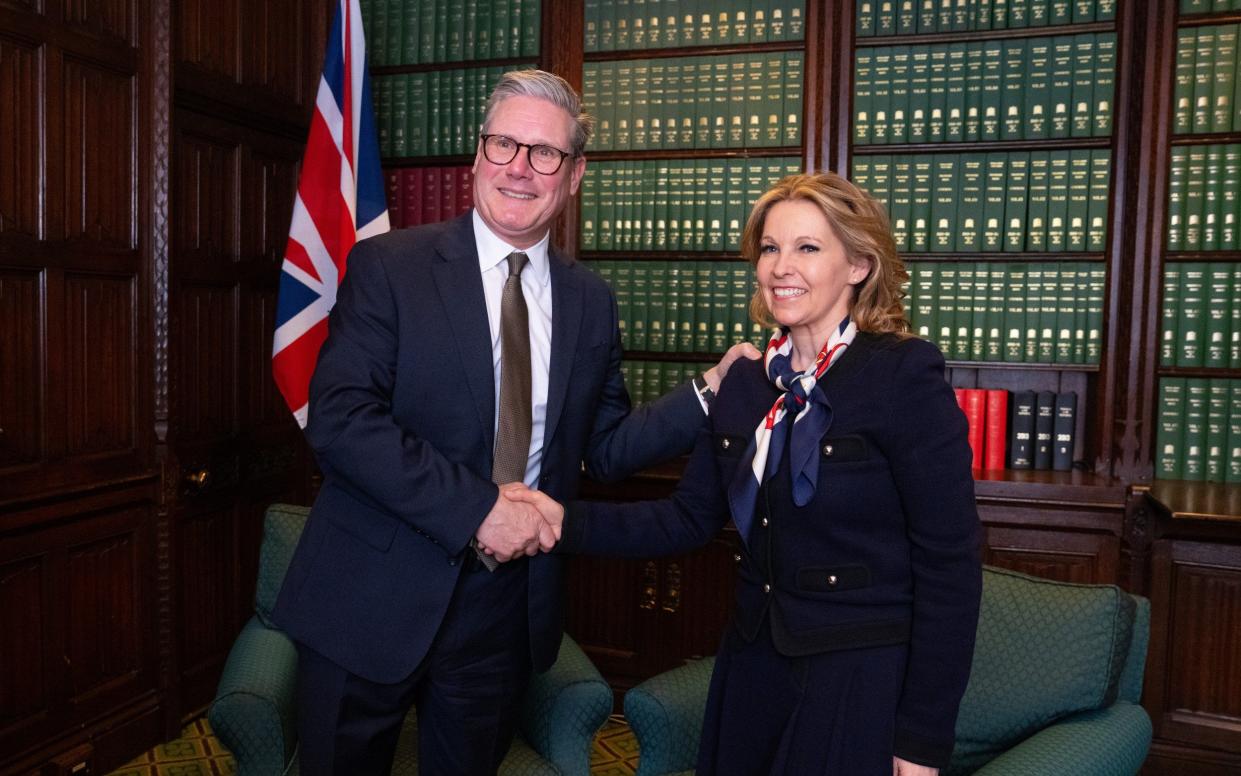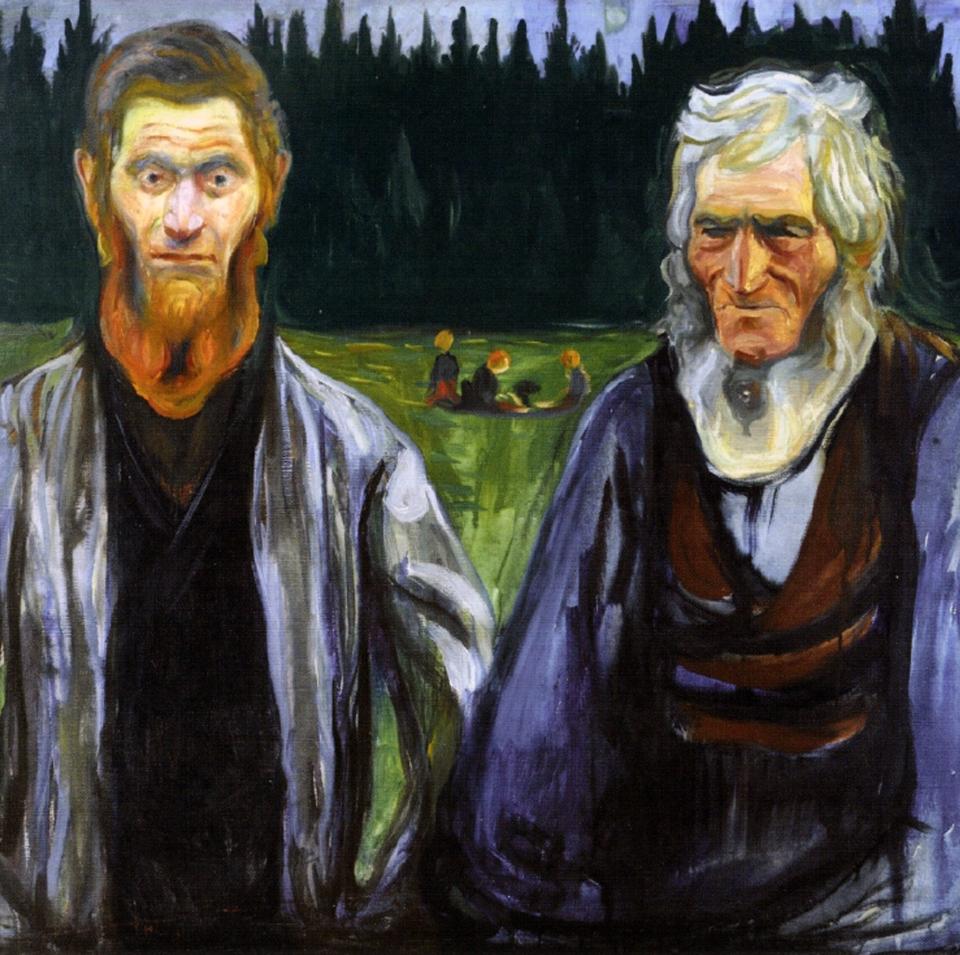Letters: Conservative MPs’ disloyalty reflects a deeper malaise in the party

- Oops!Something went wrong.Please try again later.
SIR – Another Conservative MP, Natalie Elphicke, has defected to Labour in the face of predicted Tory losses at the next general election (report, telegraph.co.uk, May 8). This does not say much for these MPs’ belief in Conservative values, which perhaps goes to the crux of the problem with the present Government.
Jonathan Mann
Gunnislake, Cornwall
SIR – When will MPs understand that they are chosen by voters to represent them, and not to grandstand on their own personal views?
Christopher Turner-Hawkes
Kingsbridge, Devon
SIR – There is an argument seeking to gain ground that Tory MPs are better qualified to choose the leader of the party than members. Presumably Natalie Elphicke and her like would’ve preferred Sir Keir Starmer for this post.
Sebastian Neville-Clarke
Vines Cross, East Sussex
SIR – I would encourage many more of the socialists in the Conservative Party to defect. Then we may actually be left with MPs who are truly conservative.
Stephen Lally
Berkhamsted, Hertfordshire
SIR – Penelope Upton (Letters, May 8) blames Boris Johnson for the decline of the Conservative Party.
This did not begin when he started campaigning to leave the EU, but with David Cameron’s half-heartedness over Brexit. That was when the modern Tory party started to diverge from its grassroots supporters, and the process has continued, leading to the situation our Government now finds itself in.
If anyone deserves blame, it is the man who is now Foreign Secretary.
Andrew Pearce
London SE3
SIR – Although Rob Mason (Letters, May 7) is correct in identifying the sacking of Boris Johnson as the start of the collapse in Conservative support, there have been several other milestones along the way.
Virtually all the top Conservative supporters of Brexit – Dominic Raab, Priti Patel, Suella Braverman and others – have fallen by the wayside, most of them victims of smears by a Civil Service that cannot forgive those responsible for taking us out of the EU. Unless and until the public sector, including the judiciary, is returned to taking a neutral stance on all political matters, we are heading for permanent Left-wing government, irrespective of which party is in power.
After 50 years of voting Conservative, I’ll be voting for Reform UK next time around, because, although it will not gain power or even get more than one or two MPs, it is at least the only party that proposes to tackle the root causes of the nation’s decline.
Dr Chris Topping
Pilling, Lancashire
Religion in schools
SIR – I disagree with Vincent Hearne (Letters, May 7) that religion has no place in schools. In 1978, when I was 10, we had one religious education period a week. Each lesson was dedicated to a specific religion and gave a great insight into other faiths.
Where I was schooled was not particularly multicultural at the time, but the lessons stood me in good stead to have an understanding of other religions throughout my travels and in our now more diverse country. Do not keep religion in homes and places of worship – it only creates divisions.
Rob Williamson
Lockerbie, Dumfriesshire
SIR – Nick Kester (Letters, May 4) says religion is private. I’d suggest he walks from Victoria Station in London towards Westminster Cathedral. Further down, almost at the Houses of Parliament – where Disraeli, of Jewish birth, could enter only as a baptised Anglican – he’ll see Methodist Central Hall on his left, and Westminster Abbey diagonally opposite.
These three buildings contain in their walls so much of what is necessary to understand the social history of this country.
Jacqueline Castles
London W2
Safer van-driving
SIR – Celia Walden (Features, May 7) is right that the law needs to be updated to deal with dangerous cyclists.
There is another matter that would benefit from re-examination – the fact that multi-drop van drivers of vehicles under 3.5 tons do not get the same work breaks as their HGV counterparts.
There has been a huge increase in van traffic over the past decade. Many drivers are put under pressure to speed so they can complete their rounds, which often involve more than 100 drops. This is inevitably stressful and can lead to tired drivers making errors of judgment, resulting in serious injuries or deaths. Some might argue that a change in the law would increase costs, but it would lead to safer roads.
Graham Ashen
Horsham, West Sussex
Garrick membership
SIR – It was encouraging that as many as 40 per cent of Garrick Club members voted to maintain its male-only membership (report, May 8). There are other gentlemen’s clubs which still value tradition and would welcome such men of distinction.
Alternatively, they could set up their own club to stand as a symbol of defiance against mindless change.
Charles Simon
Leicester
SIR – I see nothing wrong with having clubs that only admit men (or women).
If the Garrick’s decision were in any way influenced by some quasi-moral attachment to a “woke” agenda and concern for the opinion of the chattering classes, it is a pity. I have always seen much wisdom in Millwall’s (unofficial) apophthegm: “No one likes us, we don’t care”.
Andrew Newcombe KC
Combe Down, Somerset
Apostrophe’s end
SIR – Apostrophes are to be phased out of street signs in North Yorkshire because they “negatively affect geographic databases” (report, May 8).
Should my town – at the northernmost point of the settled Roman Empire, where the steam engine was invented and the Scottish Railway Museum has its home – be alarmed?
Dr Andy Ashworth
Bo’ness, West Lothian
The fruits of competitive beard-growing

SIR – To lighten the gloom of the Covid lockdown – and not having to worry about sartorial standards – a beard-growing competition was announced at work (Letters, May 8).
Having never progressed beyond a five o’clock shadow in 57 years, I was unsure what the result might be. To my surprise, I ended up with a Brian Blessed-sized beard, which, having been tamed, I shall take with me to my grave. It was initially a superb disguise, and, more importantly, saves me hours, if not days, each year thanks to not having to shave.
Roger Wilson
Charter Alley, Hampshire
SIR – I grew a beard in a competition on board HMS Sheffield on the way to the Gulf in 1981. The efforts of the ship’s company were judged by the captain on Christmas Day in Oman.
Most participants shaved theirs off as soon as the judging was over, but I elected to retain mine until my wife had seen it.
The wardroom ran a book on how long my beard would last when she made its acquaintance. Most people were betting in minutes and seconds, but 43 years later it is still with me, albeit considerably more grey.
Robert Rowley
Bere Alston, Devon
Gardening fashions squeezing out songbirds
SIR – Instead of blaming cats for the disappearance of songbirds (Letters, May 8), Natural England should take more notice of the way gardens are changing. Low-maintenance gardens and artificial grass certainly don’t help.
In my neighbourhood, when properties with front gardens are sold, the new owners invariably make parking space their priority, leaving minimal greenery. Birds need hedges and shrubs as well as clean bowls of water, which not enough of us provide.
Diana R Lord
Barnet, Hertfordshire
SIR – Natural England may wish to reflect on its own recent actions. After a legal challenge, the general licences – under which most of the management of the major pest species in agricultural settings is performed – were made much more restrictive with respect to magpies. The effect of this has been to halt almost all culling of those birds. Where one once saw individuals or pairs of birds, groups of eight or 10 birds are now common.
I have no particular affection or otherwise for magpies, but we can hardly be surprised that songbird populations continue to suffer when the population of magpies has been allowed to increase in this way.
Adam Herrick
Sawston, Cambridgeshire
Letters to the Editor
We accept letters by email and post. Please include name, address, work and home telephone numbers.
ADDRESS: 111 Buckingham Palace Road, London, SW1W 0DT
EMAIL: dtletters@telegraph.co.uk
FOLLOW: Telegraph Letters on Twitter @LettersDesk
NEWSLETTER: sign up to receive Letters to the Editor here

